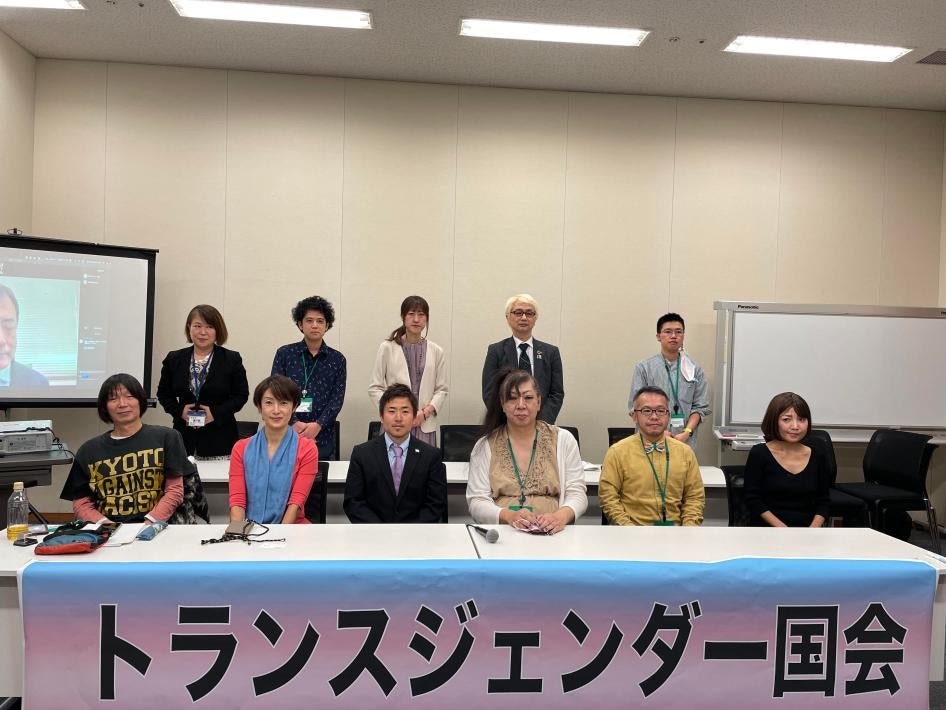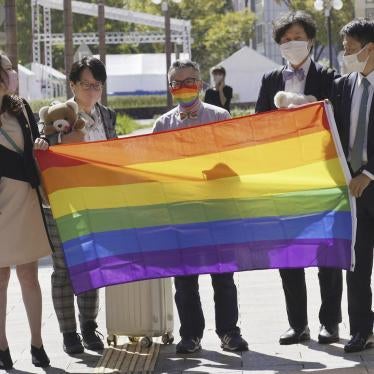Today, Japan’s Supreme Court ruled as unconstitutional the country’s law mandating sterilization surgery for transgender people as a requirement for legal gender recognition. The case follows years of advocacy and litigation to remove this abusive and retrograde requirement that contradicts medical best practices and international human rights law.
Since 2004, transgender people in Japan who want to legally change their gender must appeal to a family court. Under the Gender Identity Disorder Special Cases Act, applicants must undergo a psychiatric evaluation, be surgically sterilized, and “have a physical form that is endowed with genitalia that closely resemble the physical form of an alternative gender.” They also must be single and without children who are younger than 18.
In 2017, Japan pledged to revise the law. UN experts and the World Professional Association for Transgender Health have both urged Japan to eliminate the law’s discriminatory elements. In 2019, the Supreme Court upheld a lower court ruling stating the law did not violate Japan’s constitution. However, two of the Supreme Court justices recognized the need for reform: “The suffering that [transgender people] face in terms of gender is also of concern to society that is supposed to embrace diversity in gender identity.”
In May 2023, the Supreme Court ruled in favor of the right of a trans woman government employee to use the restrooms in accordance with her gender identity. In November 2022, the government in Japan’s Kanagawa prefecture awarded another transgender woman workplace compensation after recognizing her depression was the result of harassment she faced from her supervisor.
In today’s case, a transgender woman argued that the sterilization requirement violated her rights to pursue happiness and to protection against discrimination. The 15 justices ruled unanimously that: “Being forced to undergo sterilization surgery... constitutes a significant constraint on freedom from invasive procedures” in violation of the Japanese Constitution.
While the Supreme Court has ruled against the sterilization requirement, it has asked a lower court to review the requirement to have “genitalia that closely resemble the physical form of an alternative gender.” Regardless, this judgment is a major step toward upholding the rights to health, privacy, and bodily autonomy of trans people in Japan. It will also resonate regionally and globally as governments increasingly recognize that the process for legal recognition of trans people needs to be separate from any medical interventions.











